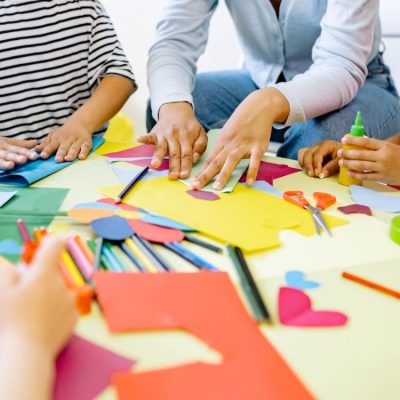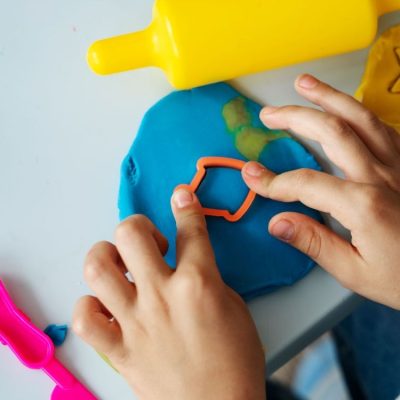Montessori education is renowned for its child-centered approach, which emphasizes not just academic growth but also the development of social and emotional skills. These skills are crucial for children’s success in school and beyond, helping them build strong relationships, navigate complex social environments, and regulate their emotions. A Montessori-based preschool creates an environment where children can learn at their own pace, fostering independence, confidence, and empathy. Let’s dive into how Montessori supports this essential aspect of childhood development.
The Montessori Approach to Child Development
At its core, Montessori education focuses on nurturing the whole child—intellectually, socially, and emotionally. Through a carefully crafted learning environment, children are encouraged to explore, discover, and grow in a way that promotes independence and emotional resilience.
-
Child-Centered Learning: The Montessori method is built on the idea that children learn best when they are actively involved in their learning process, which boosts confidence and emotional development.
-
Freedom with Responsibility: Children have the freedom to choose their activities, allowing them to develop responsibility for their actions and emotions.
Building Emotional Skills in Montessori Classrooms
In Montessori education, emotional skills are developed through real-world experiences and guided interactions. Here’s how:
1. Self-Regulation Through Independent Learning
-
Self-Awareness: Children are encouraged to reflect on their actions and emotions, helping them become more self-aware.
-
Managing Emotions: The Montessori environment teaches children how to manage their emotions, especially when faced with challenges or frustration.
-
Independent Problem-Solving: When children are given the freedom to solve problems on their own, they develop the ability to think critically and regulate their emotional responses.
2. Respect and Empathy
Montessori classrooms are designed to cultivate a deep sense of respect, both for others and the environment. This respect is vital in building emotional and social skills.
-
Treating Others Kindly: Children learn the importance of kindness and empathy by interacting with their peers and teachers.
-
Collaborative Activities: Group work and shared responsibilities help children practice cooperation, patience, and empathy.
-
Listening Skills: Montessori encourages active listening, where children are taught to hear others’ perspectives before responding.
Social Skills Development in Montessori
Social skills are an integral part of Montessori education. Children are not only taught academic content but also how to interact with others in meaningful ways.
1. Conflict Resolution
-
Guided Conflict Resolution: Teachers guide children through conflict resolution strategies, helping them to resolve disagreements in a peaceful, respectful manner.
-
Peer Mediation: Older children may help younger ones navigate social conflicts, fostering leadership and empathy.
2. Mixed-Age Classrooms
Montessori classrooms typically consist of mixed-age groups, which provide unique social learning opportunities.
-
Learning from Peers: Younger children look up to older students, while older children take on mentorship roles.
-
Building Community: Mixed-age environments promote a strong sense of community, where children learn how to work together and support one another.
How Montessori Encourages Empathy and Understanding
Empathy is a core value in Montessori education. By focusing on mutual respect and understanding, children develop the ability to see the world from others’ perspectives.
-
Group Projects: Collaborative tasks teach children how to share ideas, negotiate, and compromise.
-
Emotional Vocabulary: Children are encouraged to express their feelings using specific emotional words, enhancing their emotional literacy.
-
Peer Collaboration: Working together on common goals fosters a sense of unity and empathy among peers.
The Role of the Teacher in Social and Emotional Development
In a Montessori environment, teachers are not traditional instructors but rather guides who support children’s social and emotional growth.
-
Facilitators, Not Dictators: Teachers act as role models, providing guidance when needed but allowing children to make decisions independently.
-
Safe Emotional Space: Teachers create an environment where children feel safe expressing their feelings and concerns.
The Impact of Montessori on Self-Confidence
Montessori encourages a growth mindset and fosters an environment where children feel empowered to try new things, make mistakes, and learn from them. This positive environment has a lasting impact on children’s self-esteem and confidence.
-
Celebrating Small Wins: Children are encouraged to take pride in their accomplishments, no matter how small, which boosts their self-worth.
-
Resilience Through Challenges: Montessori education teaches children to view challenges as opportunities for growth, helping them develop resilience and emotional strength.
TechSix – Preschool & Daycare Excellence
TechSix – Preschool & Daycare Excellence is dedicated to providing a nurturing and stimulating environment for young learners. Focused on early childhood development, this institution offers a Montessori-based preschool program that fosters independent learning, creativity, and critical thinking skills. With experienced educators and a child-centric approach, TechSix ensures that each child receives personalized attention, encouraging them to explore, grow, and excel in their formative years.
Preschool Admissions are now open for the 2025-26 Academic Session!!
Conclusion
Montessori education provides a rich environment for the development of social and emotional skills, teaching children how to navigate their emotions, interact positively with others, and build a strong sense of self. The emphasis on respect, independence, and empathy creates a strong foundation for lifelong emotional and social well-being. By providing children with the tools to manage their emotions and work collaboratively with others, Montessori education prepares them for success in all areas of life.
Don’t Miss: How to Make Learning Fun with Hands-On Activities





